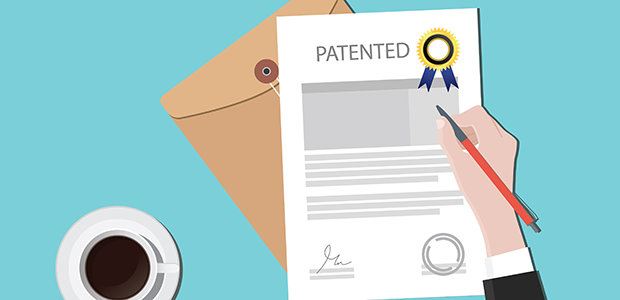
What’s the real power of patenting?
Tech giants are becoming increasingly interested in patents. For the most part, you can understand why: prolific patent filing suggests abundant innovation. For companies like Apple, the brand with the ‘Genius Bar’, genius inventions - wrapped up in beautiful design - are the heart of the brand.
Some big tech companies such as Amazon and Google file thousands of patents a year, some of which can seem so strange, however, that they make you wonder if the inventors have either run out of good ideas or are trying to bring about a dystopian future.
The most bizarre patents include Amazon putting humans in cages and Google’s electronic throat tattoo. Given how successful these companies are, is there any method to the apparent madness of these ‘innovations’, and should your startup pursue a similar strategy?
The process of patents
As an entrepreneur who has over 1,000 patents to companies in my name, I can confidently say that there are several reasons for patenting something. I’d argue that patents are typically filed because they buy a company time to look at all of their different concepts and ideas as broadly as possible. When you can file early you've got quite a lot of time to work out what will and won’t work, and stop your competitors from exploring that area.
So, filing many patents at once can be an effective strategy. And then as time progresses, you can discontinue the ones you get completely wrong and spend more time on the ones that you believe will pay off.
Some of the ideas can seem weird in isolation, like Amazon’s ‘employee cage’. Interpreted by some as a way to punish employees, it was really just an invention patented as part of a suite of ideas aimed at improving safety for staff working at heights in warehouses. The cage could in effect become the indoor warehouse equivalent of a crane operator’s cabin, so the patent filing allowed the company breathing space - except perhaps for the negative publicity - to develop an idea that would actually become usable and useful. For innovative startups, this ‘buying time’ approach to patenting can be super helpful.
The risk factor
Some companies avoid prolific patenting. At Elon Musk’s SpaceX, the CEO won’t allow an invention to be patented until it absolutely has to. Essentially, he is primarily worried about giving away a trade secret to their main competitor, the Chinese space programme. Instead, he orders innovations kept in a dark room and developed over time. So some companies prefer to keep their ideas secret, operating in obscure R&D centres until they patent when the product is launched. This method of anti-patenting is best for companies that are under less pressure to show potential investors and suitors that they are innovative, and that need to keep their inventions secret for competitive reasons.
Patents = innovation
While these are the most mainstream strategies, there are always exceptions. Some companies use patents as a weapon, signalling just how innovative they are or simply preventing competitors from creating something, despite having little intention of actually developing the idea themselves.
Patents, wacky or otherwise, show that a company is thinking about the future in a highly visionary way. Let's face it, when you think of futuristic brands, big names like Facebook, Google and Apple probably spring to mind. This will be partially down to the thousands of patents they have filed and the publicity that has been gained as a result of this.
For some futuristic players, patenting has become part of their brand and business strategy, demonstrating to both competitors and the general public that they are actively working on building the future based on how they see changing consumer and business needs and acting as a clever way of attracting great employees who want to come and contribute to that innovation.
Whatever the reason for filing a patent, doing so can be incredibly useful, particularly for a startup looking to carve out its space in the industry. But be aware that not all companies use patents to simply protect their ideas. There are in fact, many tactics at play in patenting that you need to be aware of before diving in.

